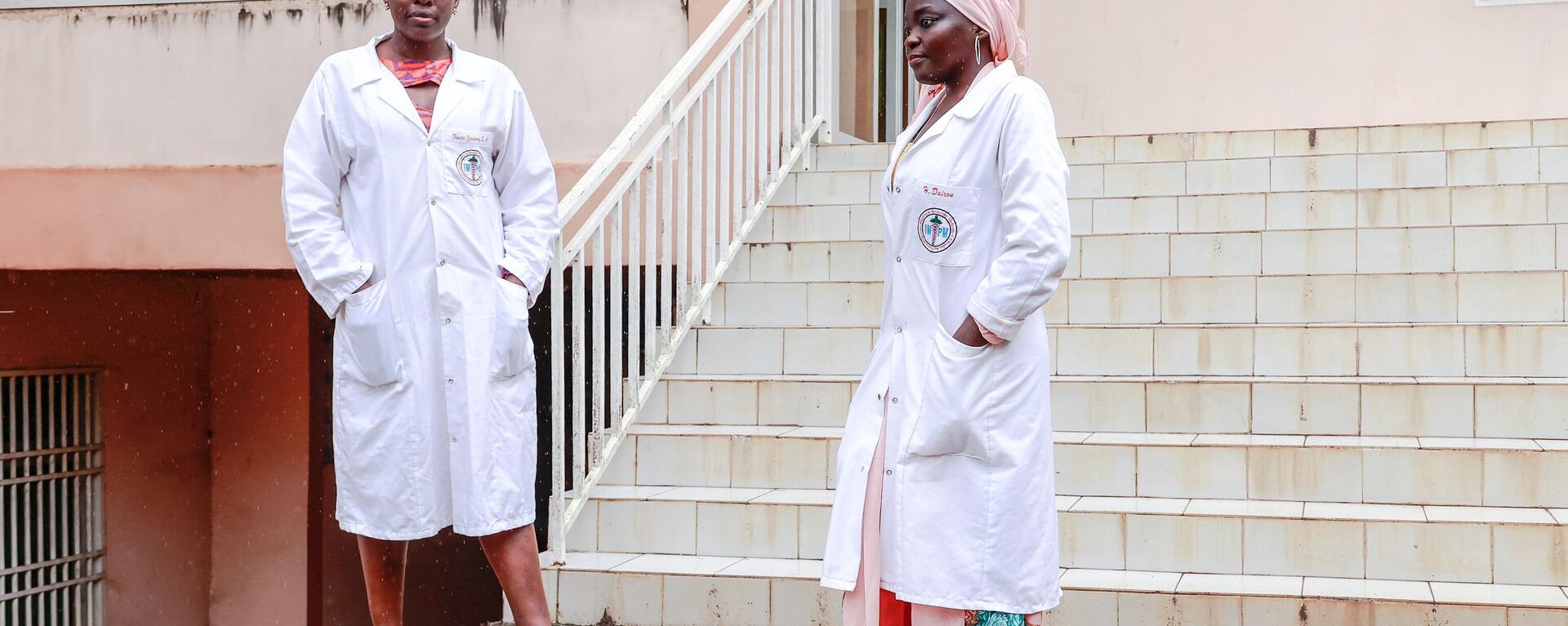'Promoting Love for Science': Kenyan Teacher Aims for Guinness World Record With 62-Hour Lesson

CC0 / Katerina Holmes /
Subscribe
Rose Tata Wekesa, a biology and chemistry teacher at St. Austin's Academy in Nairobi, Kenya, has set her sights on entering the Guinness Book of World Records for the longest science lesson ever conducted - an astounding 62 hours. Sputnik Africa caught up with the teacher to talk about her motivation and the record's inspiration for the community.
The goal of the world's longest lesson was not only to educate, but also to inspire a new appreciation for science in Kenya and across Africa, Rose Tata Wekesa told Sputnik Africa.
By demonstrating that science can be engaging and accessible, Wekesa aimed to dispel the misconception that it is a daunting subject.
"The reason I decided to set this goal is, or rather to do this longest science lesson, is just to inspire my country's people and Africa at large to love science. I felt like if I can show how sciences can be taught in an interesting way [...] I was promoting the love for science, I was promoting the interesting methods for teaching science and just wanting to make a difference in the area of my profession," she said.
In addition, Wekesa tried to inspire young people to choose the path of teaching, a profession that is "very noble but not highly esteemed."
"I wanted to inspire them and show them that a teacher can achieve great things out of the four walls of a classroom, and also to inspire the young ones to love science," the teacher remarked.
Born and raised in Nakuru, Kenya, Wekesa earned her Bachelor of Education in Science, Biology and Chemistry after discovering her love for teaching in high school. With over 13 years of teaching experience, she is dedicated to instilling a love of science in her students.
Wekesa's approach to teaching, she said, is to move seamlessly from simple concepts to complex ones, using whatever is available to create models that students can understand.
"When I was teaching about the atoms, I made them to make models using locally available materials. So you have to use what is available in your environment to teach and to make them make models, involve them in the teaching rather than just looking like you are the one who is giving them the information, allow them to participate, and that way they will understand the concepts, from the simple concepts to the complex concepts," the teacher explained.
She revealed that her record-breaking lesson covered a range of science topics, including biology, chemistry, and physics, tailored to the curriculum she teaches.
Wekesa's initiative has garnered widespread support and admiration, particularly from educational institutions, such as the Center for Mathematics and Science and Technology Education in Africa, which is looking forward to supporting the teacher further, "just to make a difference in this area of science and in the teaching of science."
Reflecting on the challenges she faced during the record attempt, the educator emphasized the importance of meticulous planning and fundraising.
"First of all, the challenging part was the planning. I needed a lot of resources to put up these events; I needed a lot of money and as an individual, I did not have the capacity to afford these events," she pointed out. "But, thanks to God, I got people in companies who supported me."
Wekesa added that she still managed to complete the feat despite experiencing physical discomfort due to high blood pressure and sore legs.
Now, to get into the Guinness Book of World Records, the teacher must gather evidence such as witness statements, a timekeeper's testimony, scan workbooks, upload more than a thousand videos and about 500 photos, and wait for verification.
"Even though probably the worst happens and we are not granted this record, at least I did what I could to promote my love for science and to show the importance of better teaching methods of science. So I feel like it already has a positive impact," she outlined.
Education in Africa and African Students in Russia
Reflecting on education in Africa, Wekesa expressed confidence that if the continent's educational resources are strengthened, students will begin to excel in the sciences and the future will have better professionals for medicine, engineering, and any other field that directly uses science.
"If we can attract support from developed countries so that we can boost our teaching resources here, then we will get students doing very well in science. We will get innovations coming from Kenya, coming from Africa and such innovations can impact the world. I know the impact will be felt both locally and internationally," she opined.
At this point, the teacher said, Africa is "still developing" and some students are "disadvantaged" because of a lack of resources.
In this sense, Wekesa has expressed support for students from Africa coming to study in Russia, which is "much more developed in terms of science than Africa and specifically Kenya," as they will be able to return to the continent with knowledge and innovation for the continent.
"I was just trying to imagine if for example, we can have teachers who can get some exchange programs to just come and see how science is taught in Russia [...] Then now come back to their country and use those methods and apply any other resources that they saw, any methods that they saw. I mean, it's a learning process that eventually has great, great benefits for Kenya and for Africa at large," she concluded.
Nearly 35,000 students from Africa are currently studying at Russian universities, the Russian cooperation agency Rossotrudnichestvo revealed last November.


